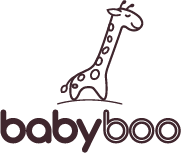There’s never enough breast milk. Even if your freezer is stuffed full of milk bags, it’s totally normal to worry that you might run out down the road. Or you may be dealing with a shortage of breast milk during pumping and feeding, that leaves you unable to keep up with baby’s growing appetite. If your supply is falling behind baby’s current demands, try these proven and sworn-by tricks for increasing your breast milk supply naturally.
Apply a Warm Compress
Before breastfeeding, apply a hot, moist compress to your breasts. Moist heat has this amazing ability to increase circulation, open milk ducts and stimulate let down – all of which encourage your milk to start flowing. The approach is pretty simple but effective.
Massage Breasts to Increase Milk Supply
Learning breast massage can be really helpful for breastfeeding moms. Try massaging the breasts after applying moist heat for the best results. There are two steps to stimulate your breasts for lactation:
- Using your fingertips, very lightly massage from the top of your breast down and over the nipple.
- Then press firmly on your breast and massage in a circular motion to encourage milk towards your nipples.
Feed More Frequently
You’ve probably heard this one over and over but it’s true – the more you feed, the more you are signaling to your body that milk is needed. The less you breastfeed, the more you’re telling your body that milk isn’t needed. A good range to stay in is feeding 8-12 times a day.
While you’re feeding, make the most of the moment. Try simply nursing with a naked baby, enjoying the skin-to-skin contact, snuggling and loving on him. Hormones get released, like oxytocin, which stimulates the breasts to let milk to flow more freely.
Adjust Your Feeding Routine
There are two ways you can adjust your routine to help increase your breast milk supply: switch-nursing and pumping while nursing.
- Switch-Nursing: This is the practice of literally switching baby back and forth from breast to breast. Start on one, and just as baby is about to slip into comfort sucking, switch her to the other breast. Keep up this practice, using burpings and a diaper change in between to keep her alert.
- Pump While Nursing: Multi-tasking moms unite! Get your pump ready, let baby latch, place the pump on your other breast and turn it on. Pumping while nursing helps both breasts drain, encouraging a more even refill. Try a pump with multiple settings like Medela Freestyle Handsfree Breast Pump or Medela Hospital-Grade Symphony Pump to figure out which setting works best to produce the most amount of milk for you. If an electric pump doesn’t work for you, try a manual breast pump.
Power Pumping to Increase Breastmilk
Pump power hour (AKA power pumping) is a popular method among breastfeeding moms to increase milk supply – especially moms who can’t nurse all day. Pump power hour takes place anywhere you can find some privacy and happens only once a day, the same time each day. It works like this:
- Pump for 20 minutes
- Rest for 10 minutes
- Pump for 10 minutes
- Rest for 10 minutes
- Pump for 10 minutes
Think Nutrition
There are two parts to this section. One, foods and herbs to eat that may help increase milk supply and two, why maintaining your nutrient levels is important.
Foods and Herbs to Eat to Increase Breastmilk Supply
Of course, there’s oatmeal. Quick, regular, or steel-cut – it’s all said to increase milk supply. Flaxseed is another sworn-by food product and can be found in lactation cookies that are definitely more than edible. A lot of moms turn to another herb called Fenugreek. You can get fenugreek in pill form at your local herbal store, along with lactation tea blends, alfalfa, and oat straw. While there, you may want to grab some Brewer’s Yeast, which contains iron, vitamin B, and other minerals said to increase milk supply.
Take note with any herbs – you may or may not experience some side effects. It’s important to talk to your doctor or lactation specialist before making any drastic changes to your diet.
Most importantly, there’s plain, old water. Given that breast milk is 88 percent water, you need to resupply as often as possible. A good goal to reach is eight ounces of water each time you breastfeed.
Nutrients Are Important to Breastmilk Supply
Breastfeeding burns calories and takes nutrients from your body. That’s the beauty and magic of nature. Almost no matter what you consume, baby will get the nutrients she needs from somewhere in your body. So, it’s important to take care of yourself by ensuring you are getting plenty of nutrients in your food – and potentially supplementing where you are lacking. Protein, vitamins, minerals, immune-boosters, all of these are here to help you regain energy, bounce back, and feel more like yourself. Take care of you, too, mom. And talk to your doctor about how you are feeling before you take on a new food regimen. Certain symptoms are indicators of certain deficiencies.
Low milk supply may come and go throughout your breastfeeding adventure. These go-to tricks to increasing breast milk have been working for mom for years, and you may find a few that do the job for you. If you are still struggling with low supply and are experiencing other symptoms, it’s important to talk to your doctor or lactation specialist to determine if something else is going on.

